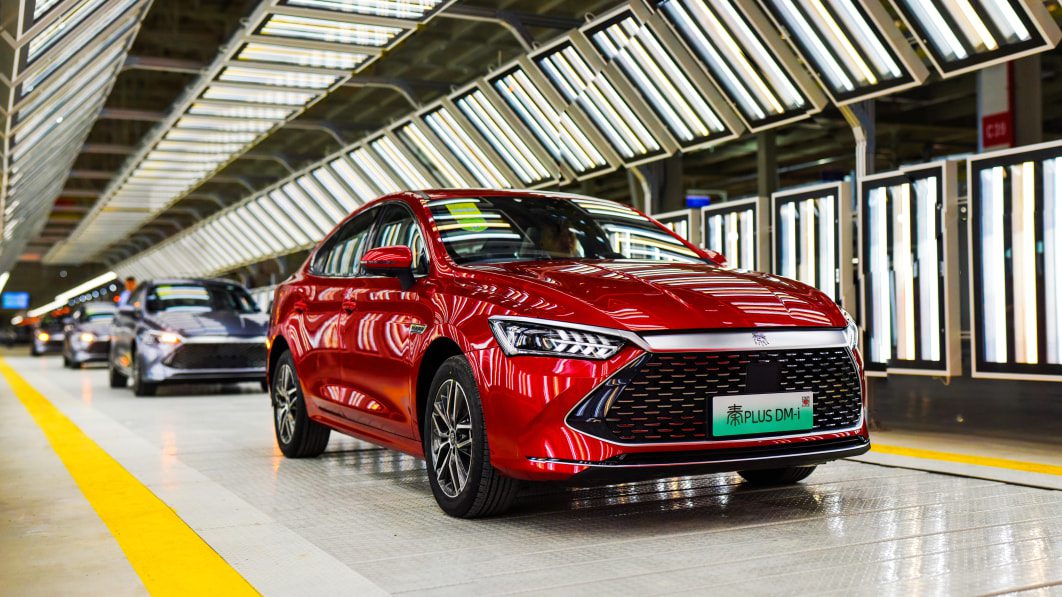BYD outsells Tesla … well, not exactly

The first vehicle, a Qin Plus DM-i sedan, rolls off the assembly line June 30 at BYD’s new factory in Changfeng County, Hefei City, Anhui Province of China. (Getty Images)
Internet searches for Warren Buffett-backed Chinese automaker BYD were hot and heavy this morning, based on some reports that characterized BYD as having outsold Tesla to become “the world’s leading electric vehicle seller.”
We threw quote marks around that phrase, because it’s a mischaracterization that needs to be cleared up. Nonetheless, BYD is coming on strong.
According to company filings on Sunday, Shenzhen-based BYD sold 641,350 “new energy vehicles” in the first six months of 2022 — that’s a 315% increase over the same period in 2021, when automakers were still freshly emerging from being clobbered by the pandemic.
Note that second set of quotation marks. BYD does not strictly sell battery electric vehicles, so the term “new energy vehicles” also applies to hybrids. Of BYD’s total sales, 323,519 were pure battery electric vehicles.
Tesla, by comparison, delivered 564,743 vehicles in the first half of the year. And Tesla, as you know, sells only pure electrics. So it’s still on top in the EV race.
But we’ll say it again: BYD is coming on strong.
BYD stock shares are up 36% since January, with market capitalization of about $149 billion — Tesla’s stock in that same period is down, also by 36 percent. And BYD, which is China’s largest domestic automaker, is getting a big boost from the Chinese government’s drive to cut down on carbon emissions.
A Covid lockdown at Tesla’s Shanghai plant slowed production in the second quarter, but BYD’s plants are mostly not in Covid hotspots, so it was cranking out cars while Tesla was idled in a 22-day shutdown. Tesla’s Shanghai Gigafactory produces half of Tesla’s entire output of cars. And Tesla has been struggling with supply chain issues like so many other automakers and had some stumbles on that front when its Shanghai Gigafactory restarted.



